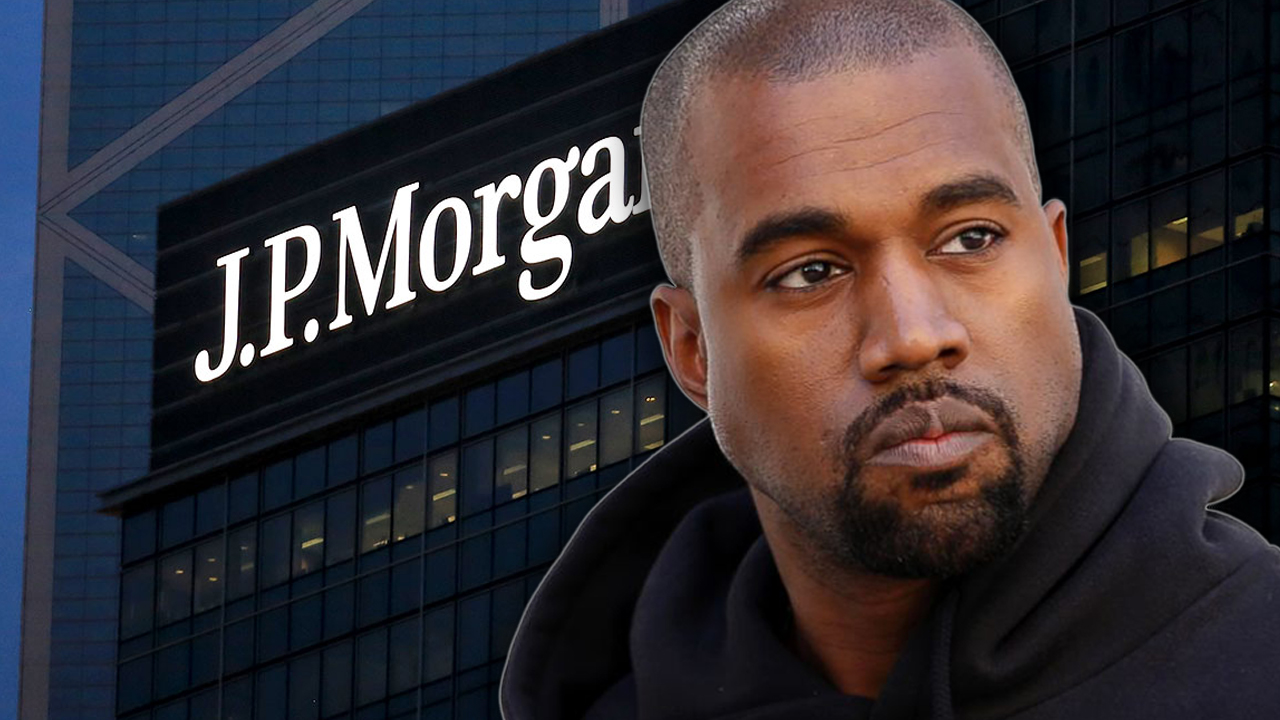On October 12, the conservative influencer and political commentator, Candace Owens shared a letter on Twitter that shows JPMorgan allegedly closed Kanye West’s (also known as Ye) bank accounts. The hip-hop star and rapper has been accused of making antisemitic statements in recent times, and some of his tweets have been removed from Twitter.
Political Commentator Candace Owens Shares an Alleged Letter From JPMorgan to Kanye West, Letter Terminates the Bank’s Relationship With Rapper
The American rapper, songwriter, and record producer Ye (Kanye West) has been dealing with a lot of flak lately. While one of West’s tweets says; “Who you think created cancel culture?” on October 9, more recent tweets have been removed from the celebrity’s Twitter profile. Furthermore, Ye has been controversial for recently wearing a “White Lives Matter” t-shirt. In a tweet shared on October 7, Ye shared an image of a hat that says “2024,” possibly hinting at another attempt to run for president of the United States.
Following all the controversy surrounding the Atlanta-born musician, the political commentator Candace Owens published a tweet that shares an alleged letter Ye received from the financial giant JPMorgan.
“Earlier today I learned that [Kanye West] was officially kicked out of JP Morgan Chase bank,” Owens tweeted on Wednesday. “I was told there was no official reason given, but they sent this letter as well to confirm that he has until late November to find another place for the Yeezy empire to bank.”
Owens added:
We have reached extremely frightening times in this country. Who are what has landed us into these times is an ongoing discussion which I would like to open up.
Ye Responds, Says He’s Happy to Bring Bank Canceling to the Forefront of Conversations
Following the tweet from Owens, the New York Times’ Dealbook confirmed the letter’s authenticity. Ye also shared commentary about the situation with Page Six and he noted that he was happy that he crossed the line. “Hey, if you call somebody out for bad business, that means you’re being antisemitic,” the rapper noted. “I feel happy to have crossed the line of that idea so we can speak openly about things like getting canceled by a bank.”
Ye’s story follows the recent report about Paypal’s terms of service, when the company sent out a terms of service (ToS) change in error. A copy of Paypal’s ToS had shown the company would fine users $2,500 for the spreading of what the firm called “misinformation.” However, Paypal retracted the user policy information after the social media backlash and said it was published in error. The payments company said: “An AUP notice recently went out in error that included incorrect information.”
“Delete Paypal” searches on the internet jumped 1,400% following the Paypal ToS mixup. Meanwhile, crypto supporters on the Reddit forum r/bitcoin said that Ye should move toward censorship-resistant money like bitcoin (BTC). One Redditor wrote:
I’m not into pop culture or celebrities but this situation represents a colossal opportunity. It will bring so much attention to Bitcoin if this guy came out in response to JPMorgan on social media and simply said: ‘F*** the banks then, I’ll move over to Bitcoin.’
Tags in this story
Bank, Banking, Bitcoin, Candace Owens, Celebrities, comments, Conservative influencer, Controversial, controversy, Crypto Supporters, Hip-Hop Artist, jpmorgan, JPMorgan Bank, JPMorgan Cancels, JPMorgan Chase, JPMorgan Kanye, JPMorgan Ye, Kanye West, Kanye West Banking, misinformation, New York Times Dealbook, Page Six, Paypal, political commentator, Pop Culture, rapper, record producer, tweets, Ye, Yeezy
What do you think about the reports that allege JPMorgan has terminated its relationship with Kanye West? Let us know what you think about this subject in the comments section below.
![]()
Jamie Redman
Image Credits: Shutterstock, Pixabay, Wiki Commons
Disclaimer: This article is for informational purposes only. It is not a direct offer or solicitation of an offer to buy or sell, or a recommendation or endorsement of any products, services, or companies. Bitcoin.com does not provide investment, tax, legal, or accounting advice. Neither the company nor the author is responsible, directly or indirectly, for any damage or loss caused or alleged to be caused by or in connection with the use of or reliance on any content, goods or services mentioned in this article.


